The view from New York – reflections from Climate Week September 2024.
As the dust settles on another frenetic week in New York, there’s an opportunity to reflect on the trends and themes that dominated, although it’s important to remember that with more than 900 events in total spread across this city of many millions you can only really ever scratch the surface.
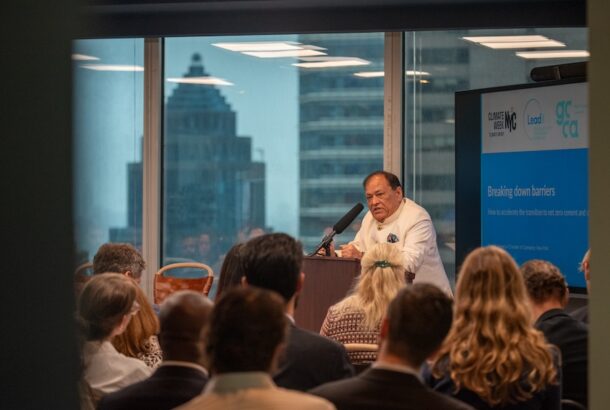
As usual, Climate Week coincided with the opening of the United Nations General Assembly. No climate summit was called this year by the United National Secretary General and the Assembly was understandably dominated by escalating tensions in the Middle East and the war in Ukraine. But there was no shortage of airtime at a leadership level for industry, clean technology and green transition issues. Each year Climate Week has themes which shape the event programme, for 2024 there were ten – all inter-related but half of them with a strong focus relevant to the challenges of delivering a just, green industry transition: Energy; Environmental Justice; Finance; Heavy Industry; and Policy.
Representing LeadIT in New York were Per Andersson, the Head of the Secretariat, Robert Watt, the Global Engagement Lead and Nadia Mondini, Policy Coordinator. They travelled for a series of engagements with members and stakeholders including two LeadIT (co-)hosted events as part of the official Climate Week calendar.
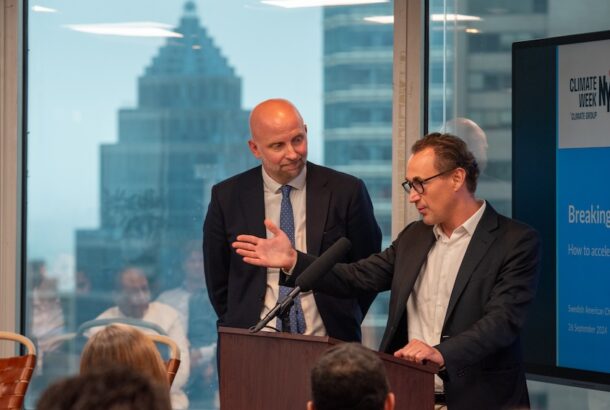
Photo by Marcus Haraldsson.
The first LeadIt event was The path to a net-zero industry: How global leadership and collaboration can accelerate the industry transition. This brought together key representatives from governments, heavy industry sectors and their value chains, as well as multilateral institutions to discuss:
- Successful leadership approaches towards enabling industry decarbonization projects and how to diffuse and scale such approaches;
- What is needed to create an enabling environment for investments in heavy industry decarbonization;
- Where the persistent bottlenecks around heavy industry decarbonization are;
- The perspective from emerging economies and the unique circumstances and challenges which they face around heavy industry decarbonization.
The second LeadIt event, co-hosted with the GCCA, was Breaking down barriers: How to accelerate the transition to net zero cement and concrete. This featured speakers from industry including both incumbents and new technology providers, government, academia and financiers. On the agenda were questions including:
- How can innovation and the adoption of new technologies be accelerated through corporate and public-private partnerships as well as targeted financial assistance?
- What are the persistent policy and regulatory barriers hindering development and scaling of different decarbonization technologies?
- How can the transition in developing and emerging economies be supported through knowledge sharing, technology transfer, and co-development?
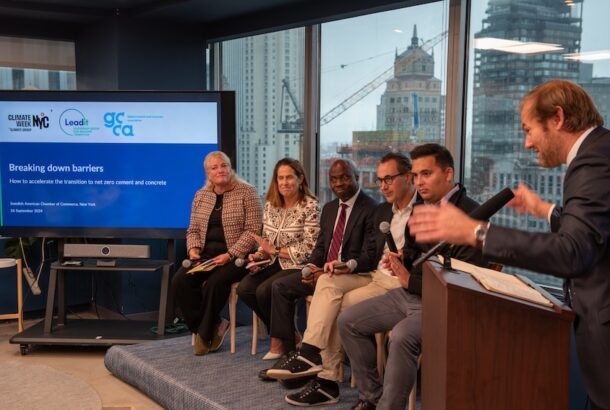
Both events focused on action, reflecting the need to make changes now or risk losing the momentum of recent years. Concrete progress made by companies and governments – LeadIT members and others – as well as how this can be scaled and learnt from was centre stage. This mirrored the theme for the whole of Climate Week, which was convened under the banner “It’s Time” – calling for urgent, collaborative climate action.
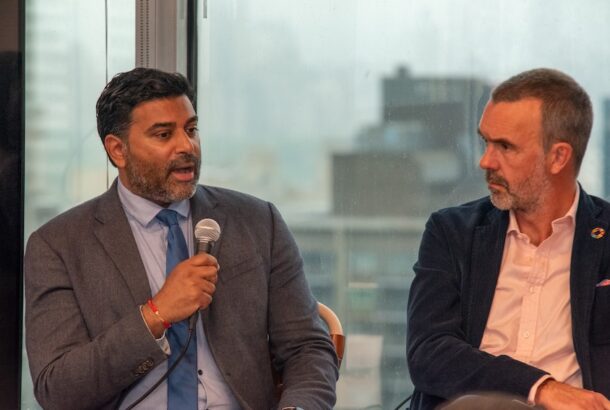
Here’s a taste of what we saw and heard at our own, and other events with industry decarbonization in focus.
- There is substantial and increasing engagement and activity around industry decarbonization including from leading countries and in the form of new projects and initiatives.
- There is a general consensus on the basic principles that solutions for a green industry transition exist and must be scaled in a just way, which can only happen with multi-stakeholder and cross-regional collaboration. What was called “hard-to-abate” a couple of years ago, has now clearly become “possible-to-abate”.
- One of the most crucial challenges is to mobilize demand for green materials to unlock final investment decisions for industry decarbonization projects – however, respective real-world success stories which could be replicated and learnt from are still rare.
- Questions around trade and common but differentiated responsibilities will have to be addressed with even more engagement and inclusiveness. Some key steps towards a green transition have been achieved but going forward it will be key to find ways to accelerate decarbonization efforts in a way that is both just and reflective of the urgency around unlocking new technologies before more high-emission capacity gets locked in.
- While there is agreement on the importance of more public and multilateral finance being provided for industry decarbonization, still much less attention is given to how such assistance will mobilize investments from commercial financiers. Going forward, it will be important for stakeholders to work together to ensure that increasing de-risking from the public sector indeed does unlock private engagement at the scale and speed needed.
- It is becoming increasingly clear that renewable capacity additions are lagging behind what heavy industry sectors need to decarbonize, both in developed and in developing and emerging economies.
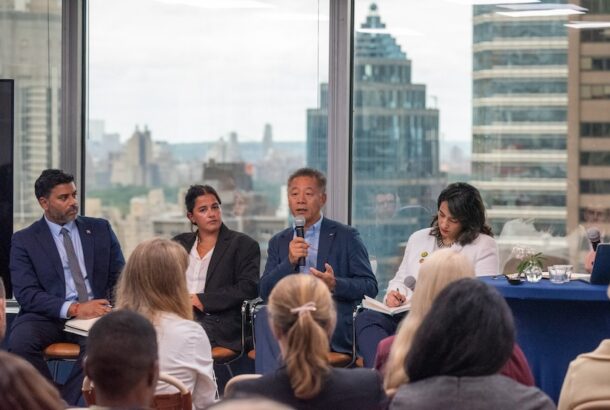
If you missed our events and would like to catch up on the debate you can watch here:
